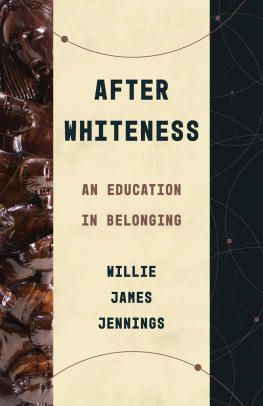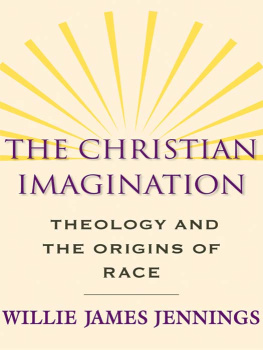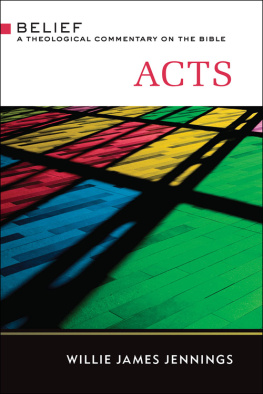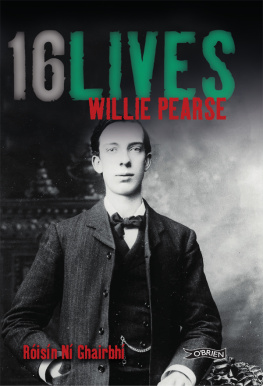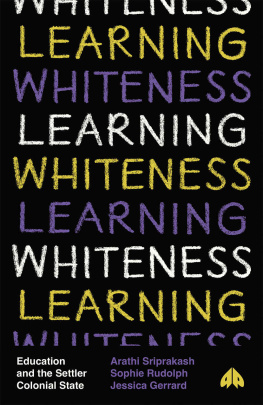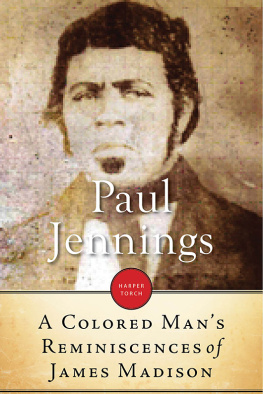Willie James Jennings - After whiteness : an education in belonging
Here you can read online Willie James Jennings - After whiteness : an education in belonging full text of the book (entire story) in english for free. Download pdf and epub, get meaning, cover and reviews about this ebook. year: 2020, genre: Religion. Description of the work, (preface) as well as reviews are available. Best literature library LitArk.com created for fans of good reading and offers a wide selection of genres:
Romance novel
Science fiction
Adventure
Detective
Science
History
Home and family
Prose
Art
Politics
Computer
Non-fiction
Religion
Business
Children
Humor
Choose a favorite category and find really read worthwhile books. Enjoy immersion in the world of imagination, feel the emotions of the characters or learn something new for yourself, make an fascinating discovery.
- Book:After whiteness : an education in belonging
- Author:
- Genre:
- Year:2020
- Rating:5 / 5
- Favourites:Add to favourites
- Your mark:
- 100
- 1
- 2
- 3
- 4
- 5
After whiteness : an education in belonging: summary, description and annotation
We offer to read an annotation, description, summary or preface (depends on what the author of the book "After whiteness : an education in belonging" wrote himself). If you haven't found the necessary information about the book — write in the comments, we will try to find it.
After whiteness : an education in belonging — read online for free the complete book (whole text) full work
Below is the text of the book, divided by pages. System saving the place of the last page read, allows you to conveniently read the book "After whiteness : an education in belonging" online for free, without having to search again every time where you left off. Put a bookmark, and you can go to the page where you finished reading at any time.
Font size:
Interval:
Bookmark:
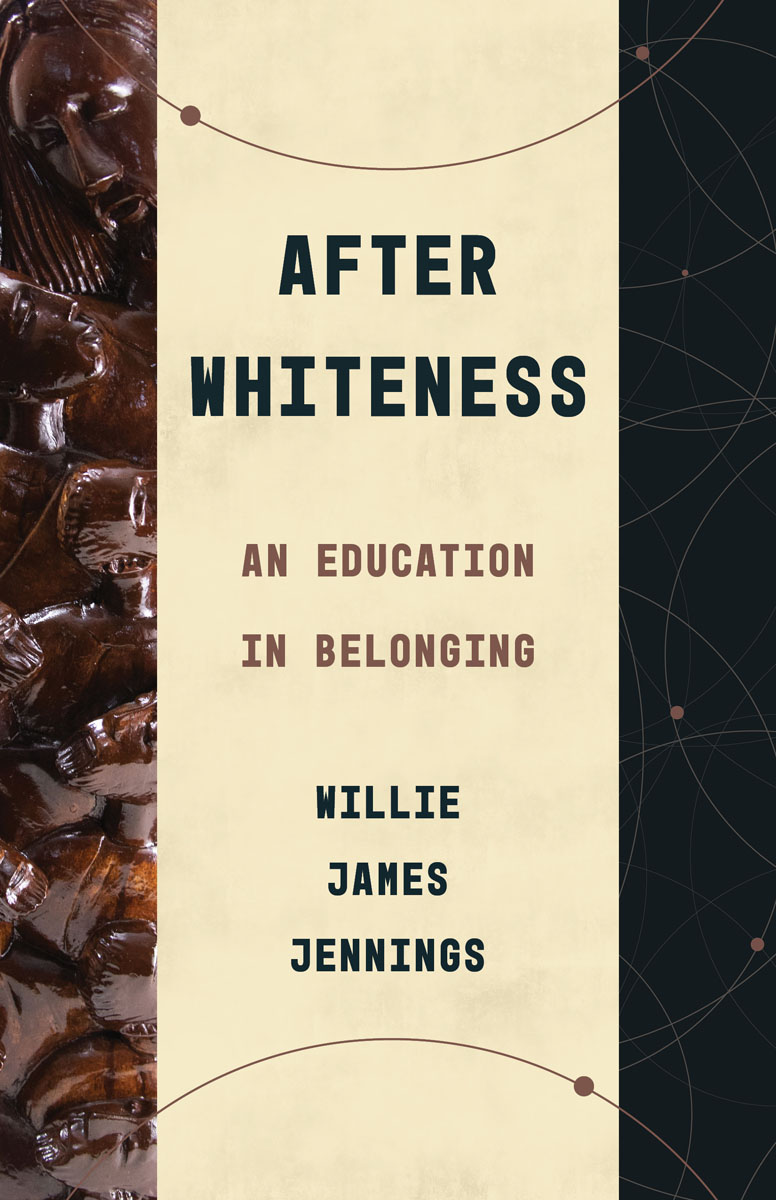

THEOLOGICAL EDUCATION BETWEEN THE TIMES
Ted A. Smith, series editor
Theological Education between the Times gathers diverse groups of people for critical, theological conversations about the meanings and purposes of theological education in a time of deep change. The project is funded by the Lilly Endowment Inc.
Willie James Jennings
After Whiteness: An Education in Belonging
Chloe T. Sun
Attempt Great Things for God: Theological Education in Diaspora
Amos Yong
Renewing the Church by the Spirit: Theological Education after Pentecost
Wm. B. Eerdmans Publishing Co.
4035 Park East Court SE, Grand Rapids, Michigan 49546
www.eerdmans.com
2020 Willie James Jennings
All rights reserved
Published 2020
Printed in the United States of America
26 25 24 23 22 21 20 1 2 3 4 5 6 7
ISBN 978-0-8028-7844-1
Library of Congress Cataloging-in-Publication Data
Names: Jennings, Willie James, 1961 author.
Title: After whiteness : an education in belonging / Willie James Jennings.
Description: Grand Rapids, Michigan : William B. Eerdmans Publishing Company, 2020. | Series: Theological education between the times | Includes bibliographical references. | Summary: A multimodal reflection on the way theological education can foster pluralistic community and resist Western ideals of individualism, masculinity, and whitenessProvided by publisher.
Identifiers: LCCN 2020020639 | ISBN 9780802878441 (paperback)
Subjects: LCSH: TheologyStudy and teaching.
Classification: LCC BV4020 .J46 2020 | DDC 230.071/1dc23
LC record available at https://lccn.loc.gov/2020020639
This book is dedicated to
those who are in search
of a place to fill out that
Holy dream of a new world
down to the details of a life.
I was waiting for a more opportune time to write this book, sometime after my next book was finished, but Ted Smith approached me about the Theological Education between the Times project and convinced me that this was the right time to write this book. He was right, and I am forever in his debt for drawing me into this wonderful work and into the lives of a fabulous group of scholars and teachers. Amos Yong, Chloe Sun, Daniel Aleshire, Mark Jordan, Elizabeth Conde-Frazier, Colleen Mary Mallon, Keri Day, Maria Liu Wong, Rachelle Green, Hoffman Ospino, Mark Young, and Uli Guthrie all helped me clarify my thinking and confirmed for me the urgency of this book and of all the books that will be published in this series. Ted Smith led us beautifully in this work with gracious wisdom, deep humility, and an extravagant hospitality that extended from our meals to our ideas. This book is inspired by the witness of Katie Geneva Cannon, William Pannell, Cheryl Sanders, Fumitaka Matsuoka, M. Shawn Copeland, Eleazar S. Fernandez, Daisy Machado, Vine Deloria Jr., Evelyn Parker, and Kwok Puilan. Along with being accomplished scholars, these wonderful souls saw deeply into the dilemmas I articulate in this book. I have learned much from their faithful efforts to mark a path forward. I am also thankful for my many years of consulting work for the Wabash Center for Teaching and Learning in Religion and Theology, under the leadership during my time of first Lucinda Huffaker, then Dena Pence, and now Nancy Lynne Westfield. Working with these brilliant directors along with Timothy Lake, Tom Pearson, and especially Paul Myhre allowed me the greatest gift a scholar and teacher could ask forfriends who saw the problems and the possibilities of theological education like I was seeing them. I am also very thankful for my work with the Association of Theological Schools, then under the leadership of Dan Aleshire and now under Frank Yamada. Consulting for these two crucial organizations allowed me to be with faculty, staff, students, and administrators from Vancouver to Florida, from Montreal to San Diego, learning about the intricate realities of this work of theological education. I also enjoy the great blessing of being able to teach and do my research at Yale Divinity School alongside a fabulous group of supportive colleagues, starting with our dean, Gregory Sterling. Words cannot capture my thankfulness for their friendship. I want to offer special thanks to my former colleagues at Duke University Divinity School for their unwavering love. We share what can only come through decades of life togethera deep understanding of our shared joy, anguish, and hope. I also live thankful each day for the world I share with Joanne Browne Jennings and our grown daughters, Njeri Jennings and Safiya Jennings. Everything I write lives near my thoughts of them and inside my gratefulness for their love and encouragement.
I was an academic dean at a divinity school. I learned the secrets. I cannot tell you the secrets, but I can tell you what they mean.
The secrets are mundane, as are all secrets, but what they mean speaks of weighty mattersof life and death and the power of tongues, of awesome hope and of great sorrow, and of bodies, many bodies, touching God and being touched by God. Then there is the fear, like a tide flowing in and out, colliding with joy, like strong waves hitting rocks and the mixture of joy and fear splashing over everyone, soft drops and hard bits of rock.
How was it that I as an academic dean came to know the secrets and their meaning? That question is within the larger question of how I as a black man in America came to be an academic dean of an overwhelmingly white divinity school in a major university in America.

I have always been a listener of bodies and a reader of thoughts. This fact is more and less mystical than it sounds. I have always loved books and the sensual act of readingrubbing my hands across a page, delighting in the way letters dance on a page, sensing my breathing in and out as I connect the words and then the sentences and the paragraphs. And as they connect, I hear the voice the writer has created. Then and there the thoughts appear, open and free for anyone with the patience to see. Reading thoughts has always been a precious freedom for me.
I learned very early, however, through trial and error, that the voiceformed as one reads the pages of a text is a phantasm, its connection to the actual author always a matter for speculation, and that how that voice connects to my thoughts and my voice is integral to that speculation.
Trial and error began for me when I too quickly imagined that the funny, irritating, maddening, wise, righteous, audaciously courageous or insightful voices I heard through texts matched authors who would see me, a black man, as their conversation partner. My many teachers disabused me early and often of that hopeful connection. Pull the ideas forward, not the people, they said. All my teachers invited me into the work that would become my life.
I work in the fragments.
I learned to listen to bodies. It was a matter of survival. At home, I was the smallest child in a family of bigger people. At school, and in the neighborhood, I was the quiet, shy, sensitive boy surrounded by an exquisite variety of bullies, each a prodigy in their particular art of torture. In my town, white people (immigrants made white) ruled and exercised power in ways so ubiquitous that even they did not understand its extent, but their ignorance of their own power would be no excuse for my ignorance. I had to know how to listen especially to white peoples bodiestheir moods and manners, their joys and sorrows, and the slightest, almost imperceptible beginnings of irritation or anger or fearbecause my life depended on it.
Next pageFont size:
Interval:
Bookmark:
Similar books «After whiteness : an education in belonging»
Look at similar books to After whiteness : an education in belonging. We have selected literature similar in name and meaning in the hope of providing readers with more options to find new, interesting, not yet read works.
Discussion, reviews of the book After whiteness : an education in belonging and just readers' own opinions. Leave your comments, write what you think about the work, its meaning or the main characters. Specify what exactly you liked and what you didn't like, and why you think so.

